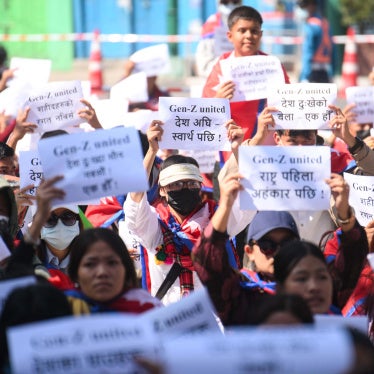Cambodia is struggling to lift itself out of poverty. Its economy is being drained by a bloated military. Investment is deterred by a weak legal system and a corrupt judiciary. The World Bank, in a carefully understated analysis, says the country and its population of 12 million face a "formidable array of development challenges."
When Cambodia's foreign aid donors meet in Phnom Penh from this Wednesday to Friday, they should find a way to jump-start the reforms that are urgently needed.
Poverty reduction and good governance will be the theme of the meeting of what is known officially as the Cambodia Consultative Group. If it is anything like past meetings, little will result but vague promises from the Cambodian government in response to weak demands by the donors for reform.
On Feb. 3, Cambodia held its first local, commune-level elections in more than 30 years. The pre-election period was marked by hundreds of complaints of intimidation, harassment and death threats. From January 2001 to polling day, 15 members of political parties running against the governing Cambodian People's Party were murdered. There was widespread coercion of voters, primarily through confiscation of voter registration cards and pressure to take oaths of loyalty to the ruling party. It won control of most commune councils. Yet the donors and many Cambodians recognized this experiment with grassroots democracy as an improvement over national elections in 1993 and 1998 plagued by rampant political violence, in part a legacy of years of civil war, Vietnamese occupation and fighting against remnants of the Khmer Rouge regime.
The more important test will be the National Assembly elections scheduled for July next year. The donors should develop a set of minimal benchmarks for electoral reform, and condition any aid or tech-nical assistance for the polls on the government's strict adherence.
There must be a comprehensive reorganization of the National Election Committee, the body charged with supervising the election process, to make it truly impartial. A good first step was the public hearing held recently by the National Assembly on amendments to the electoral law. The election committee is due to start work in September.
The security of all candidates and their supporters must be guaranteed, and all parties should be given full and equal access to the broadcast media. Procedures for the committee to investigate and penalize electoral abuses should be strengthened. Violations committed in campaigning for the February elections should be prosecuted and punished.
Donors should also take steps to put teeth into well-intentioned but largely ineffectual efforts to promote good governance. As the World Bank has pointed out, sustainable development cannot take place without a credible legal and judicial system, an end to corruption and civil service reform.
The Cambodian Human Rights Action Committee, a coalition of 18 Cambodian nongovernment organizations, is calling on the donors to take much more stringent action to monitor the government's commitments to strengthen the rule of law.
Promises by Prime Minister Hun Sen and his cabinet have yet to bring about improvements needed in the criminal procedure code and the penal code. Nongovernmental organizations are urging the donors to press for a comprehensive judicial reform plan and greater transparency in the operation of the legal system. Also on the agenda for the donors' meeting is Cambodia's $42 million Demobilization and Reintegration Project,' a plan aimed at downsizing the military, disarming soldiers (who are notorious for abusing civilians with impunity) and cutting the defense budget. But the project, funded partly by the World Bank and Japan, is based on wildly divergent estimates of the size of the armed forces, allegations that thousands of "ghost soldiers" who don't exist are collecting compensation packages, and other charges of corruption and incompetence. The World Bank and the donors should cancel the project, or revamp it from top to bottom, with assistance from nongovernmental organizations and scrutiny from outside auditors.
The Cambodian government has signed and ratified international human rights treaties. It should be praised for being the first Southeast Asian country to ratify the Rome Statute for the International Criminal Court. But donors should not remain silent about Cambodia's recent decision to close its borders and deport hundreds of asylum seekers from Vietnam, contrary to its obligations under international refugee law.
Cambodia is facing donor fatigue amid competing demands for aid to Afghanistan and Africa. What it needs most is a transfusion of political will as well as funding to tackle deep-seated problems created by years of inertia and conflict.
Mike Jendrzecjzyk is Washington Director of Human Rights Watch's Asia Division.







